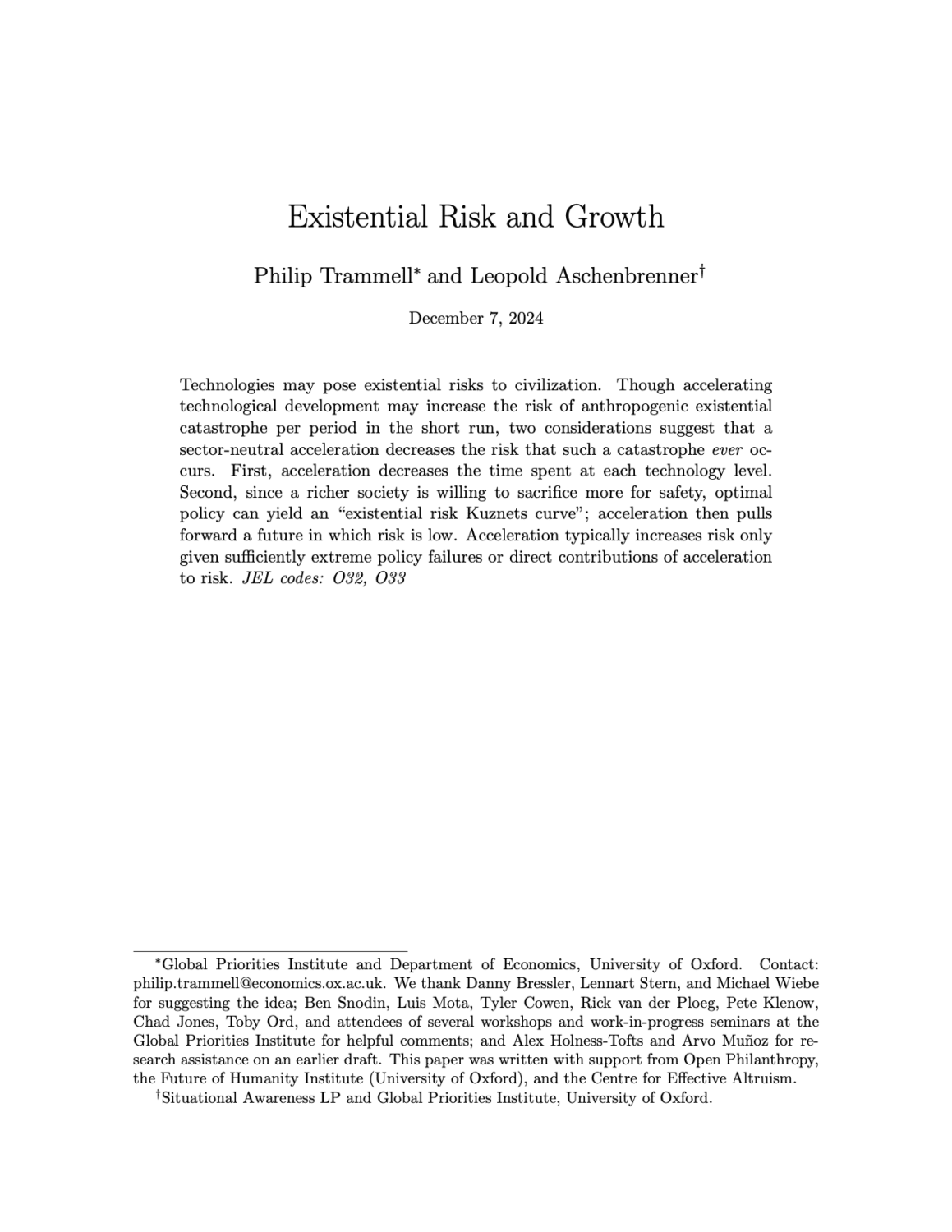Existential Risk and Growth
Philip Trammell (Global Priorities Institute and Department of Economics, University of Oxford) and Leopold Aschenbrenner
GPI Working Paper No. 13-2024
Technologies may pose existential risks to civilization. Though accelerating technological development may increase the risk of anthropogenic existential catastrophe per period in the short run, two considerations suggest that a sector-neutral acceleration decreases the risk that such a catastrophe ever occurs. First, acceleration decreases the time spent at each technology level. Second, since a richer society is willing to sacrifice more for safety, optimal policy can yield an “existential risk Kuznets curve”; acceleration then pulls forward a future in which risk is low. Acceleration typically increases risk only given sufficiently extreme policy failures or direct contributions of acceleration to risk.
An earlier version of the paper was published as GPI Working Paper No. 6-2020, and is available here.
Other working papers
The case for strong longtermism – Hilary Greaves and William MacAskill (Global Priorities Institute, University of Oxford)
A striking fact about the history of civilisation is just how early we are in it. There are 5000 years of recorded history behind us, but how many years are still to come? If we merely last as long as the typical mammalian species…
A non-identity dilemma for person-affecting views – Elliott Thornley (Global Priorities Institute, University of Oxford)
Person-affecting views in population ethics state that (in cases where all else is equal) we’re permitted but not required to create people who would enjoy good lives. In this paper, I present an argument against every possible variety of person- affecting view. The argument takes the form of a dilemma. Narrow person-affecting views must embrace at least one of three implausible verdicts in a case that I call ‘Expanded Non- Identity.’ Wide person-affecting views run into trouble in a case that I call ‘Two-Shot Non-Identity.’ …
Dispelling the Anthropic Shadow – Teruji Thomas (Global Priorities Institute, University of Oxford)
There are some possible events that we could not possibly discover in our past. We could not discover an omnicidal catastrophe, an event so destructive that it permanently wiped out life on Earth. Had such a catastrophe occurred, we wouldn’t be here to find out. This space of unobservable histories has been called the anthropic shadow. Several authors claim that the anthropic shadow leads to an ‘observation selection bias’, analogous to survivorship bias, when we use the historical record to estimate catastrophic risks. …

